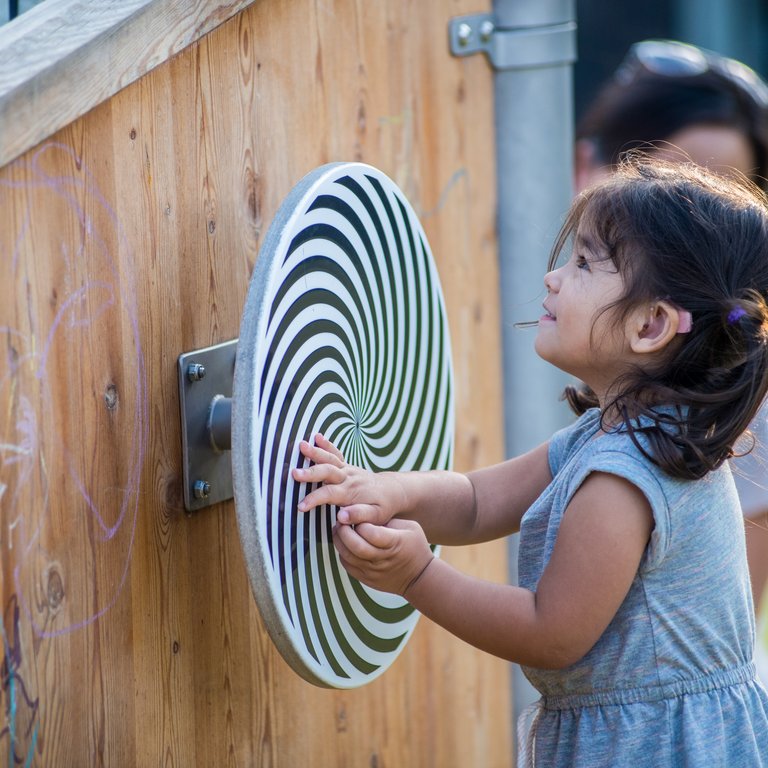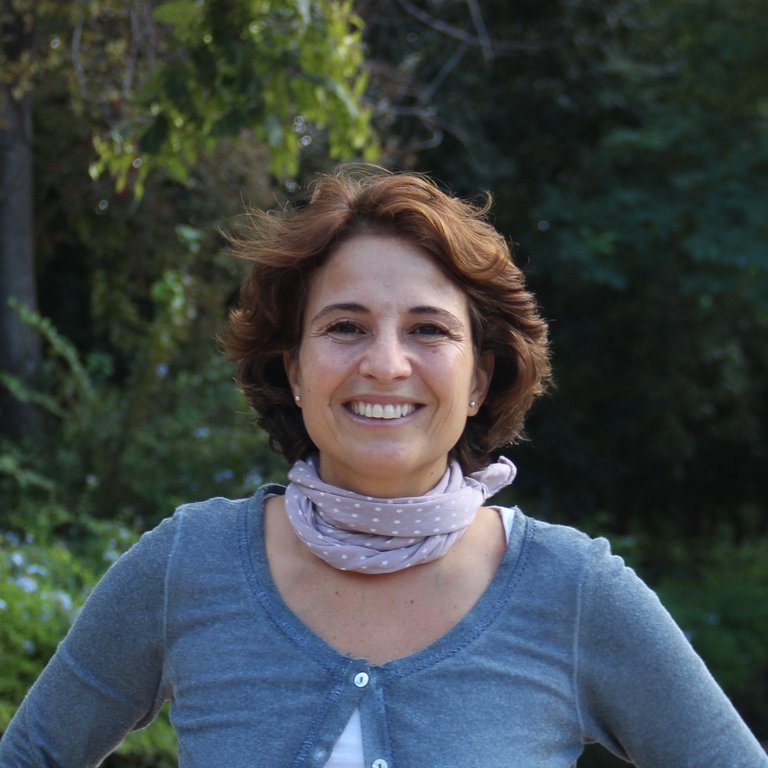One of the challenges we have as adults, is that our mind has a habit of being habitual and we are not aware of our unconscious choices. The unconscious bias theory says, we don’t see things as they are – we see them as we are. That said, according to neuroscience, we have a way to work around that and exercise our minds not to fall into our habitual minds trap. We call it having a "beginners mind", which is like having an open and curious mind, like children do.
As an adult working for children, this is as an important quality as any other. We want to create spaces using our children’s creative minds and at the same time, our adult's knowledge, and learnings.
And this is a challenge.



See, for example the corner of this building (Picture 2). Is it going in or out?
The truth is that the corner is neither going in nor out. It´s an optical illusion, and whatever we see, is how our mind is perceiving it. So, in other words, our mind creates our reality.
When we see or experience something for the first time, our brain literally creates a mental snapshot of what we just experienced. And it is very hard to see something that we have seen once in one way, to see that in a different way.
Scientist call this “Cognitive Rigidity”.
The “Cognitive Rigidity” is, in a way, an essential and useful quality of the mind as it helps us being able to recognize things, otherwise imagine not being able to recognize snakes while walking in the forest!
While this function of the brain is very useful for survival, it´s also very limiting for modern work and human interaction, because the things we experience that we’ve experienced before, we’re not looking at them with a fresh perspective, but we are rather projecting our past.
We can easily transfer this example to meeting someone for the first time or starting a new conversation about a landscape project. We may see or hear something from our customer that may remind us to an old conversation and because of our Cognitive Rigidity, automatically our mind tends to know what is coming next. At that point, the danger is that our mind may shut down for listening. Or we may know, or think we know, what´s best, and while we are apparently listening to someone, internally we are already planning in our minds what we are going to say next, and therefore not truly listening to the person in front of us.
Practicing Mindfulness can help us train our brain to listen better and to also work towards having a beginner’s mind.
Mindfully listening to someone implies silencing, not only our mouth, but also our minds, tunning in our body language and being genuinely curious about what the person is trying to say. In other words, mindful listening means being fully present and having a beginner’s mind.
We are fully confident that we have the knowledge of what are the ingredients needed to create a wonderful landscape project or a park where children and adults and enjoy, expand and be themselves. This comes from our adult’s learnings, but also from trying to be as curios as a child and by training our Beginner’s Mind.
Text: Celia Pipó, mind-trainer, spatial planner, BDU Espacios de Valor Barcelona
And this is a challenge.



See, for example the corner of this building (Picture 2). Is it going in or out?
The truth is that the corner is neither going in nor out. It´s an optical illusion, and whatever we see, is how our mind is perceiving it. So, in other words, our mind creates our reality.
When we see or experience something for the first time, our brain literally creates a mental snapshot of what we just experienced. And it is very hard to see something that we have seen once in one way, to see that in a different way.
Scientist call this “Cognitive Rigidity”.
The “Cognitive Rigidity” is, in a way, an essential and useful quality of the mind as it helps us being able to recognize things, otherwise imagine not being able to recognize snakes while walking in the forest!
While this function of the brain is very useful for survival, it´s also very limiting for modern work and human interaction, because the things we experience that we’ve experienced before, we’re not looking at them with a fresh perspective, but we are rather projecting our past.
We can easily transfer this example to meeting someone for the first time or starting a new conversation about a landscape project. We may see or hear something from our customer that may remind us to an old conversation and because of our Cognitive Rigidity, automatically our mind tends to know what is coming next. At that point, the danger is that our mind may shut down for listening. Or we may know, or think we know, what´s best, and while we are apparently listening to someone, internally we are already planning in our minds what we are going to say next, and therefore not truly listening to the person in front of us.
Practicing Mindfulness can help us train our brain to listen better and to also work towards having a beginner’s mind.
Mindfully listening to someone implies silencing, not only our mouth, but also our minds, tunning in our body language and being genuinely curious about what the person is trying to say. In other words, mindful listening means being fully present and having a beginner’s mind.
We are fully confident that we have the knowledge of what are the ingredients needed to create a wonderful landscape project or a park where children and adults and enjoy, expand and be themselves. This comes from our adult’s learnings, but also from trying to be as curios as a child and by training our Beginner’s Mind.
Text: Celia Pipó, mind-trainer, spatial planner, BDU Espacios de Valor Barcelona


